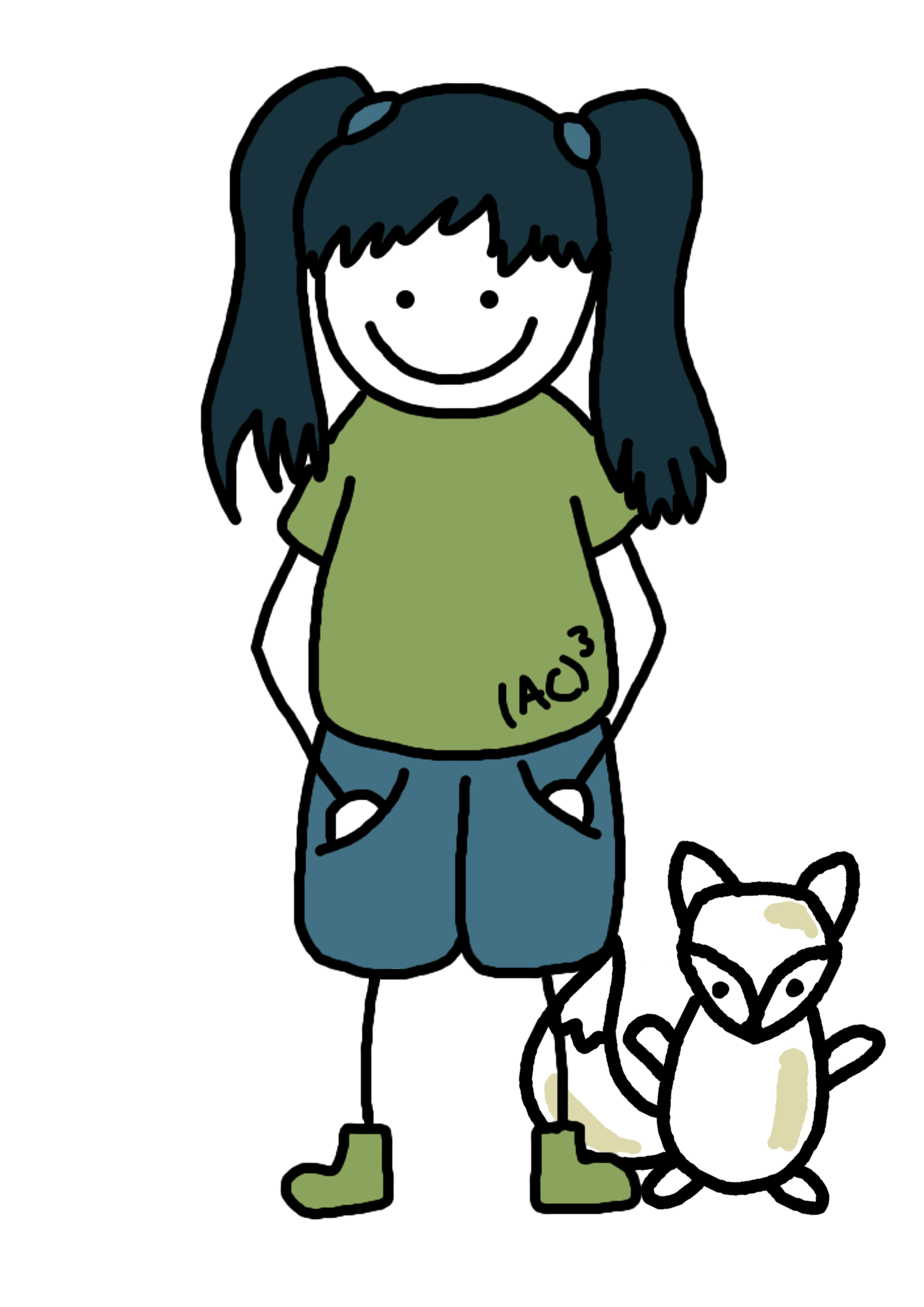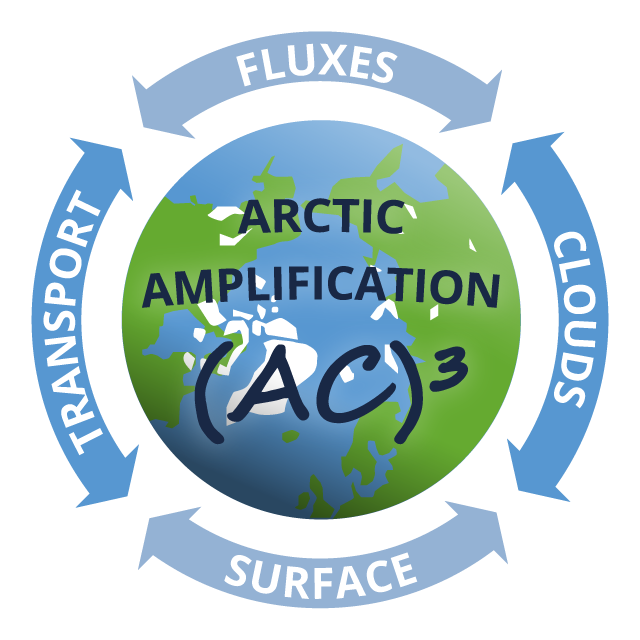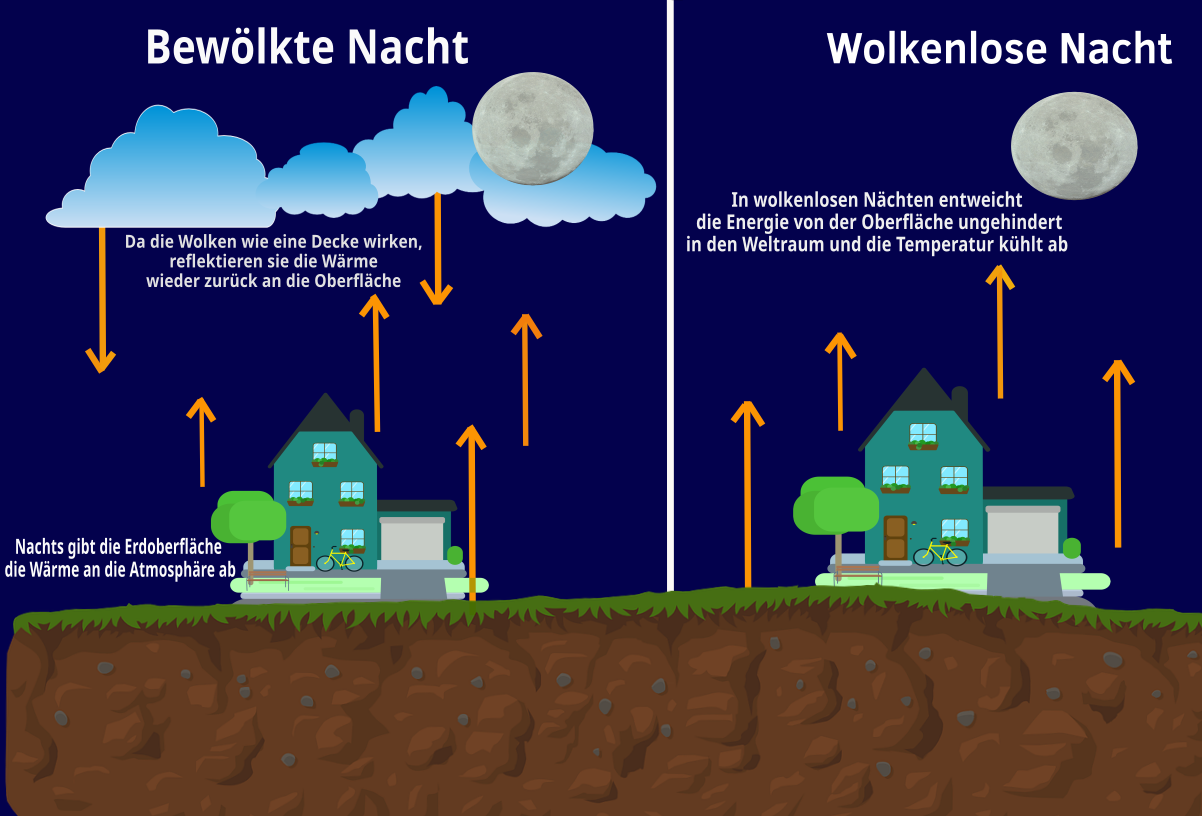Why does it often cool down so much at night?
The other day, Dad, Mika and I climbed the observation tower at Cospudener Lake on a mild spring evening and watched a really great sunset. The weather was perfect because there wasn’t a cloud in the sky. On the way back home, however, it quickly became bitterly cold and I started to freeze. I wondered how it could suddenly get so cold at night when it was still so nice and warm during the day with the glorious sunshine.
This question stuck with me, so I asked the scientists at the Leipzig Institute of Meteorology why it is always so cold at night after sunny days. Sebastian explains the following to me:
“The sun’s radiation provides the earth with energy, which makes life on our planet possible in the first place and ensures that it gets warm. But not only the sun, but also all objects on earth radiate energy in the form of heat. They are said to emit radiation according to their temperature. Unlike solar radiation, we cannot see this heat radiation, but we can still feel it. You’ve probably noticed that it quickly gets much warmer in a small room with lots of people than when you’re sitting alone in the room.”
I nod. – “That’s true. But why is that?” I ask.
“Well, in a way, we humans are also objects that radiate heat to our surroundings according to their temperature, which is normally 37 °C. The other objects, or in our case people, absorb this heat. It is also said that they absorb the radiation, which makes them warm.
“But what does all this have to do with the cold night?” I ask impatiently.
Sebastian answers: “Just like us humans, the ground or clouds in the atmosphere, for example, emit and absorb heat radiation. And it is precisely this thermal radiation that becomes important when the sun is not shining at night and therefore cannot supply the earth with energy. The ground radiates towards the atmosphere and thus loses energy, which means it gets colder near the ground. If there are no clouds, this energy can escape unhindered towards space.
On cloudy nights, this is exactly what is prevented. The clouds then cover the earth like a blanket. Although the ground still radiates, it also absorbs the radiation emitted by the clouds. And it is precisely this radiation that has a warming effect on the ground and limits cooling near the ground.”
I find this topic really exciting. Until now, I’ve always associated clouds with cold weather. But I didn’t realize that it’s the other way around at night. In any case, I’ll be better prepared from now on and take a warm jacket with me the next time I watch a sunset in clear weather.




